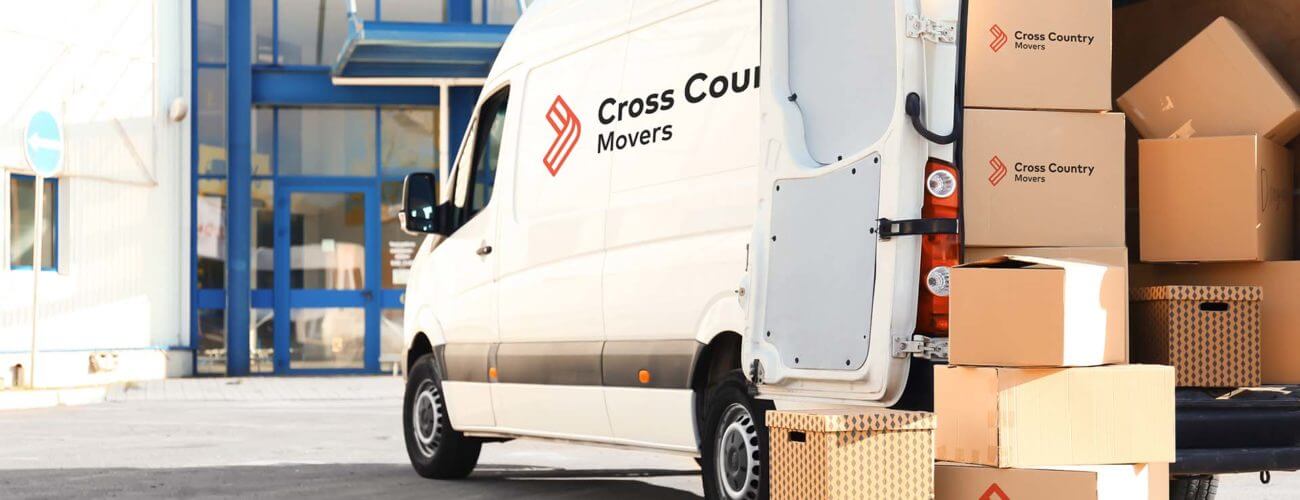

Moving to Another State to Start Over – Your Comprehensive Guide
Posted in Moving Tips & Tricks on December 6, 2023
Diving into the exciting prospect of moving to another state to start over? Fantastic! This isn’t just a relocation, it’s your ticket to a world filled with new beginnings and endless opportunities. Our guide is jam-packed with savvy tips, from picking the perfect spot to unpacking your last box, all while keeping a smile on your face. Think of it as your friendly GPS for navigating the thrilling journey ahead.
Moving to Another State to Start Over – Is It a Good Idea?
Contemplating starting fresh in a new city? Moving to another state to start over can be a transformative experience, offering more than just a change of scenery. For many, it’s a gateway to exciting career advancements, a lifestyle more aligned with their aspirations, or invaluable personal growth.
The benefits of relocating extend beyond the physical – there’s a profound psychological uplift that comes with a new environment. It’s like hitting the reset button on life.
This change can reinvigorate your mindset, and offer a sense of freedom and possibility. Whether it’s for professional development, seeking a different cultural vibe, or simply the allure of the unknown, the advantages are clear.
Yes, moving states can be challenging, but for those yearning for a new beginning, the rewards often outweigh the hurdles. Ultimately, if the drive for change aligns with your goals and values, then relocating to another state can indeed be a brilliant idea. It’s like opening doors to a world brimming with new opportunities and experiences.
Start With Pre-Move Planning – Laying the Groundwork
Effective relocation planning is crucial when you’re moving away and starting over in a new city. The journey begins with choosing the right state or city that aligns with your lifestyle, career goals, and personal preferences. Start by researching potential destinations – consider factors like the job market, climate, cultural scene, and overall quality of life.
Use social media and online forums to get real-life insights from residents. It’s also wise to visit the areas on the shortlist to get a first-hand feel of the local vibe. When narrowing down your choices, reflect on what truly matters to you – is it proximity to nature, a bustling urban setting, or perhaps a family-friendly community?
Budgeting and Financial Considerations
Budgeting for an interstate move is critical. Estimate the moving costs, considering factors like the distance, amount of belongings, and whether you’ll hire professional movers. Use an online relocation budget calculator and resources like the Numbeo website to compare the cost of living between the current location and the target destination.
This site offers valuable insights into housing, utilities, groceries, and other everyday expenses, helping you create a realistic budget. Don’t forget to factor in initial costs such as deposits for housing and utilities. To save on moving costs, consider decluttering before the move, choosing a less busy time of the year for movers, or even handling some aspects of the move yourself.
It’s also important to plan for unexpected expenses. Having a financial cushion can provide peace of mind during this significant life change.

Find a New Home – Housing Options and Strategies
When moving to a new home, especially finding housing in a new state, the internet is the most powerful tool. Browse real estate websites like Zillow, Realtor.com, and Trulia, which offer extensive listings and filters to narrow down your search based on preferences and budget. These platforms often provide valuable information about local amenities, schools, and even crime rates.
Utilize virtual tours to get a feel for the space without having to travel. Remember, deciding where to live isn’t just about the house itself but also about the community. Social media groups and forums specific to the target location can also be insightful, offering real-life experiences. Always verify the credibility of listings and consider working with a local real estate agent for tailored assistance.
Do a Bit of Research on the Best Neighborhoods
Before you pick a city to live in after the interstate relocation, it’s essential to research the best neighborhoods. This will help you move without fear of relocating somewhere unknown. Start by exploring online resources like the AreaVibes website, which provides detailed neighborhood information, including livability scores, crime rates, education quality, and more.
Look for community forums and social media groups where you can ask current residents about their experiences. Pay attention to factors like proximity to work, schools, public transportation, and healthcare facilities. Remember, a neighborhood’s vibe and community spirit are just as important as the physical aspects. Visiting the area, if possible, can also offer valuable insights.
Here’s a video with great tips on how to find a safe neighborhood:
Choose a Reputable Relocation Company
When you’re ready to move away and start over, selecting a reputable relocation company with interstate experience is crucial. Begin the search by seeking recommendations from friends or family who’ve had positive moving cross-country experiences. Online platforms such as Yelp and Google Reviews can also offer valuable insights from previous customers.
Once you have a list of potential long-distance movers, check their credentials on the Better Business Bureau website to ensure they have a good track record. It’s also important to verify the mover’s USDOT number, which is required for interstate moving companies. This check ensures the company is legitimate and compliant with safety and insurance regulations.
How to Compare Moving Services and Quotes
Examine reviews and testimonials to gauge the quality of the company’s long-distance moving services, vehicle transport services, and packing services. These reviews can provide insights into the company’s reliability, efficiency, and customer service. When reviewing quotes, ensure they are comprehensive and include all potential costs to avoid surprise fees.
Ask about their process for handling delicate items and inquire if they offer additional packing or storage solutions. If you need to transport a vehicle, ensure the long-distance moving company has the experience and the right equipment for car shipping. Comparing these services thoroughly will help minimize relocation stress and ensure all belongings, including vehicles, are handled with care.

Pack Just Essentials and Declutter the Rest
Pack efficiently to make the process smoother and the new home less cluttered. Box up essential items you use daily, like necessary kitchenware, basic toiletries, a few sets of clothes, and important documents. For fragile items, use bubble wrap, packing paper, or even clothes and linens for extra cushioning.
Label these boxes clearly to ensure careful handling during the move. Utilize sturdy boxes and high-quality packing tape for added security. Remember, packing is also an opportunity to declutter, so think critically about each item’s necessity and utility. Electronics, books, and decorative items should be packed securely but accessible, considering you might need them soon after arriving.
Best Tips on Decluttering Items Quickly and Effortlessly
When you downsize for the move, it’s an excellent opportunity to embrace a more minimalist lifestyle. Some things are best left behind, but oftentimes we find ourselves struggling to part with beloved items. But there’s a way to overcome this problem. Use our cross-state moving tips for decluttering quickly:
- Start early – Begin the decluttering process well before the move.
- One room at a time – Tackle one room or area at a time to avoid feeling overwhelmed.
- Sell, donate, recycle – Sort items into categories: sell, donate, recycle, or throw away. Selling or donating items can be fulfilling and practical.
- Use the one-year rule – If you haven’t used an item in over a year, it’s likely you won’t use it in the future.
- Digitize what you can – Convert physical items like CDs, DVDs, or documents into digital formats to save space.
- Enlist help – Ask friends or family for help, especially for objective opinions on what to keep or discard.
- Pack a ‘nostalgia box’ – Limit sentimental items to a single box to keep memories without clutter.
- Be ruthless with clothing – If clothes don’t fit or haven’t been worn recently, it’s time to let them go.

How to Establish New Life in a New Destination
Establishing a new life in a new state involves more than just physical relocation. It’s about adjusting to a new state and embracing the local culture and community. A crucial aspect of how to start a new life in a new state is building a social network. Engaging in local activities, joining clubs or groups aligned with personal interests, and attending community events are effective ways to meet people.
Exploring the area, trying local restaurants, and visiting parks can also help in acclimating to the new surroundings. Additionally, finding a routine, like a favorite coffee shop or a jogging path, can create a sense of normalcy and belonging. Volunteering is another excellent way to connect with the community while making a positive impact.
Local Resources and Community Involvement
After relocating, community engagement after moving across the country is essential for feeling connected and settled in the new area. To integrate into the community and meet new neighbors, start by exploring local resources like libraries, community centers, and local event calendars.
These places often offer a variety of programs, classes, and events that provide valuable information about the area. They also offer opportunities to meet people with similar interests. Participating in local community service projects or attending neighborhood meetings can also foster connections and give a sense of belonging.

Overcome Challenges and Embrace Change
It’s common to experience feelings of loneliness, disorientation, or even doubt during the initial transition phase. Practically, adapting to different local customs, navigating unfamiliar surroundings, and establishing a new routine can be daunting tasks. However, these challenges are also gateways to personal growth and resilience.
Embracing change involves adopting a positive mindset, being open to new experiences, and giving oneself time to adjust. Strategies like setting small, achievable goals, seeking support from local groups or online communities, and maintaining a sense of humor can significantly ease the post-move adaptation process.
Choose Cross Country Movers to Help You With This Change
Successfully navigating how to start over in a new state involves several key steps – thorough planning, efficient packing, careful selection of a new home, and embracing the new community. To ensure a smooth transition, consider enlisting the expertise of Cross Country Movers. Our cross-country moving services are designed to address the unique challenges of long-distance relocations.
From packing essentials and protecting fragile items to handling the logistics of transportation, we are here to support every step of your journey. With our experienced team, you can focus more on the excitement of the new beginning and less on the complexities of moving. For personalized assistance and to learn more about how we can facilitate your move, don’t hesitate to contact us.
FAQ
How Do I Choose the Right State for My Fresh Start?
Consider factors like employment opportunities, cost of living, climate preferences, and proximity to family or friends. Research states offering lifestyles that align with personal interests, such as outdoor activities, rich cultural scene, or educational opportunities. Online resources, forums, and virtual tours can provide insights into different states.
What Are the Key Financial Considerations When Moving to a New State?
Assess cost-of-living differences, including housing, utilities, groceries, and taxes. Budget for initial expenses like housing deposits and essential purchases. Research employment opportunities and average salaries in the target state. Consider potential changes in health insurance and retirement plans.
How Can I Find Housing Remotely?
Utilize reputable real estate websites for virtual tours and detailed information about properties. Engage in social media groups or forums specific to the target location for real-life insights. Consider short-term rentals as an initial step, allowing time to explore different neighborhoods after arrival.
What Should I Look For in a Moving Company for an Interstate Move?
Look for companies with positive reviews and a strong track record in interstate relocations. Check their credentials, such as USDOT numbers, and verify their legitimacy on the Better Business Bureau website. Compare quotes and services, ensuring transparency in pricing and services offered.
What Are the Best Ways to Acclimate to a New Environment?
Engage in local activities and community events to build a social network. Establish a routine to create a sense of normalcy. Explore the local area to familiarize yourself with amenities and services. Be open to new experiences and cultures.
What Are Common Challenges Faced When Starting Over in a New State?
Challenges include adapting to a different cultural and social environment, building a new social circle, and navigating unfamiliar surroundings. Professional challenges can also arise, such as establishing a new career or adjusting to different work cultures.
How Do I Handle Feelings of Homesickness or Uncertainty?
Stay connected with family and friends from previous locations through regular communication. Create a comforting home environment with familiar items. Engage in hobbies or activities that bring joy. Seek local support groups or professional counseling if feelings of homesickness or uncertainty persist.









